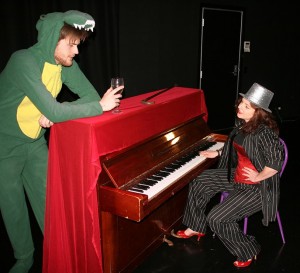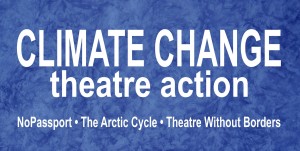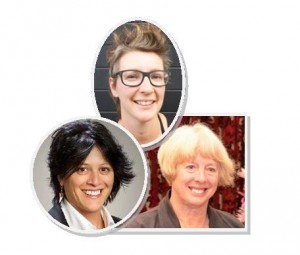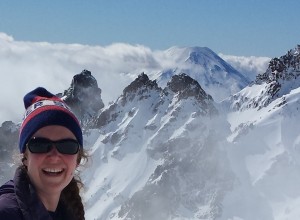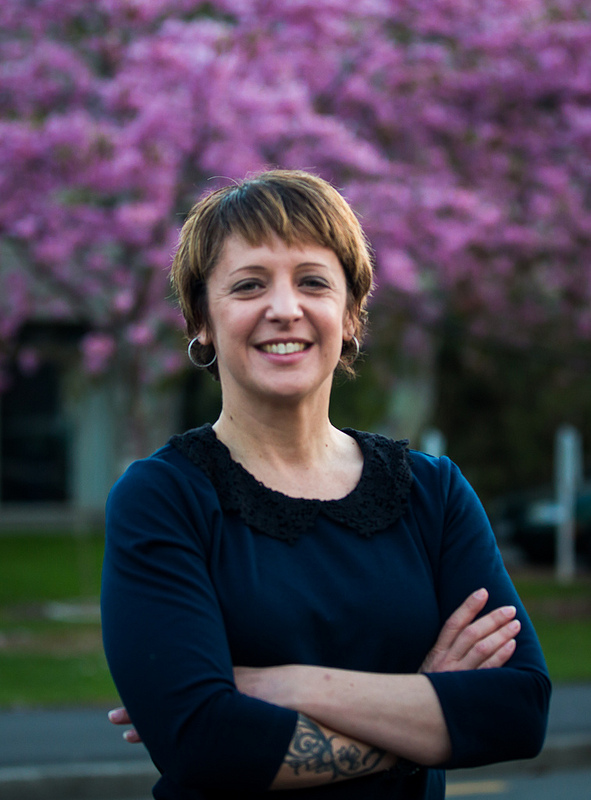
Below you will find the full programme for Waves: Climate Change Theatre Action
Theatre Lab, 5D14, Massey University Wellington Campus, Wellington, 1pm November 1. (Waves is a paperless event, and so we have posted the programme here, and will provide free wifi to the audience.) For more information about Waves, or to join us, see previous post at: Waves: Climate Change Theatre Action
Acknowledgements:
Thank you to ‘Theatre Without Borders’, ‘The Arctic Cycle’ and ‘NoPassport’, in particular Caridad Svich (recipient of 2012 OBIE for Lifetime Achievement in Theatre), Chantal Bilodeau (Artistic Director of The Arctic Cycle), and Elaine Avila (Recipient, Mellon Foundation Environmental Arts Commission, Pomona College, Los Angeles) for curating and coordinating the global programme of Climate Change Theatre Action 2015 from bases in L.A. and New York. Through the vision and hard work of these three women, from today (the global launch) to mid-December, more than 100 Climate Change Theatre Action events will be staged in 22 countries, featuring the work of more than 40 distinguished international playwrights. This is the third and largest global theatre action event organised by the team, the others being ‘The Way of Water’ (2012, theatre action on oil spills) and ‘Gun Control’ (2013).
Waves, the only Climate Change Theatre Action event in Aotearoa and the first in the world of the global schedule, is produced and directed by Elspeth Tilley, with lighting design by Emma Bennetts of Backlight, film editing and multimedia technical support by Samuel Williams, and video recording by Mark Steelsmith. Scene-change visuals between items are from the Pacific Climate Change documentary ‘Storm Islands’, provided courtesy of director Steve Menzies. The Massey University School of English & Media Studies fed and costumed the actors among many and various other supportive inputs. Artcop21 (the global cultural programme of the United Nations Conference on Climate Change 2015, of which Waves is a registered part) provided free hosting for our event at http://www.artcop21.com/events/waves/ Link to other Artcop21 events worldwide from that page.
A huge thank you to all the Waves performers (whose intriguing details are at the end of the programme) and authors for providing their time, talents and inspirational creative work to Climate Change Theatre Action to help contribute a crucial cultural and artistic element to the worldwide conversation about our planet’s wellbeing. A huge thank you to you, our audience, for coming out today to show your support for the role of the arts in provoking new thinking about the issues that matter. Follow the global project at #climatechangetheatreaction to see more events unfold worldwide over the next six weeks.
Programme
Item 1: Danny’s monologue from ‘The Atom Room’ by Philip Braithwaite
Read by Philip Braithwaite
Danny and Sarah are a modern couple. They are living in a long-distance relationship: he is in Wellington, and she is on Mars. But this is a universe where the Earth has been catastrophically damaged by tsunamis and nuclear meltdowns, and the rich elite are moving to outer colonies and Mars.
Sarah is an engineer and scientist in the Mars programme. Danny is on his own on Earth, working for Envirocorp, the only organisation left that looks out for the environment. Every now and then they can meet in The Atom Room: the most advanced virtual avatar programme in the galaxy. In his monologue, Danny is engaged in a series of interviews, trying to talk about the death of his planet, and why he refuses to leave it.
About the author: Philip Braithwaite has won multiple playwriting awards including the 2001 BBC World Service International Radio Playwriting Competition, the 2013-14 William Evans Playwriting Fellowship, and New Zealand’s top playwriting prize, the Adam NZ Play Award, in 2014.
His work has been produced in New Zealand, Australia and Europe, and he has collaborated with the Royal Court Theatre in London, the BBC and SEEyD theatre company. His radio plays have been produced on the BBC World Service and Radio New Zealand. Oh and he once had a beer with Alan Rickman. You will be the first in the world to hear a reading from this brand new work.
Item 2: Mōrehu and Tītī by David Geary
Mōrehu – Hamish Boyle
Tītī – Moira Fortin-Cornejo
Al Gore/Aurora – Sara McBride
Mōrehu is an ancient male punk rocker tuatara. In the Māori language of the Indigenous Peoples of New Zealand, Mōrehu means survivor or remnant. Tuatara means ‘spiny back’. Tuatara are rare, medium-sized reptiles found only in New Zealand. They are the last survivors of an order of reptiles that thrived in the age of the dinosaurs. Mōrehu is stuck on a drifting raft with Tītī, a young female sooty shearwater bird, muttonbird, Puffinsus griseus, or tītī (pron. Teetee). The young of these birds are a traditional food source for Māori, preserved in copious amounts of their own fat and salt. So though they may perish in large numbers before reaching adulthood, the tītī can rest assured those who eat them regularly will die prematurely of heart attacks.
AG/Aurora Australis – a famous person and The Southern Lights – makes an appearance as the raft nears Antarctica.
About the author: David Geary writes plays, television, film, fiction, and haiku on twitter @gearsgeary. He is of New Zealand Māori and Pākehā heritage, and is now also a citizen of Canada. He teaches at Capilano University, North Vancouver, in the Indigenous
Filmmaking and Documentary programs, leads playwrights’ workshops for Playwrights Theatre Centre, and works as a freelance dramaturge. He is the author of ‘Lovelock’s Dream Run’, co-wrote and co-directed the television documentary ‘The Smell of Money’ and his short story collection, ‘A Man of the People’ was published in 2003. He has worked as a scriptwriter and storyliner for television including Shortland Street, Mercy Peak, Jackson’s Wharf and Hard Out. He won the Bruce Mason Playwrights’ Award in 1991 and the Adam Foundation Playwrights’ Award in 1994. ‘Mōrehu and Tītī’ was written specifically for Climate Change Theatre Action 2015. This is its world premiere.
Item 3: Climate Change Poems from Aotearoa
Readings selected and presented by Dr Ingrid Horrocks
Many recent poems by New Zealand writers grapple, directly or indirectly, with questions of climate change. In “The Uprising,” which appears in nature poet Dinah Hawken’s latest collection, Ocean and Stone (2015), Hawken considers the rising oceans. So does Lynn Jenner in her book of poems, Lost and Gone Away (2015). Several Massey graduate students, among them poets Lynn Davidson, Sarah-Jane Barnett, and Janet Newman, have spent time exploring new ways to engage with and write about the environment. Ingrid will read fragments from some of these recent works.
About the authors: Dinah Hawken was awarded the Lauris Edmond Award for Distinguished Contribution to Poetry; Lynn Jenner has won both the Adam Prize in Creative Writing and the NZSA Jessie Mackay Award for Best First Book of Poetry; Lynn Davidson is widely published and just completed her PhD in Creative Writing at Massey University; poet and Massey creative writing tutor Sarah-Jane Barnett just released her new (and second) poetry collection, titled Work; and Massey Master of Creative Writing student Janet Newman just won the Open category of the New Zealand Poet Society’s 2015 International Poetry Competition.
Item 4: Flotsam by Elspeth Tilley
Mariana – Anna Barden Shaw
Natalia – Charlotte Tilley
Stefan – Jack Hitchens
Mariana has a tough job, judging climate-change-refugee applications. Her teenaged daughter Natalia has been reading Facebook and is less than impressed with her mother’s decisions. Things don’t look good, weather-wise – but it’s OK, Mariana can afford to build a nice big wall to keep it all at bay.
About the author: Elspeth Tilley is a graduate of the University of Queensland drama programme, the La Boite improvisation, devising and writing for theatre courses, the Gold Coast Institute of Technology acting courses 1 and 2, and the Queensland Film Academy screen actor training programme. An experienced actor for stage and screen, she now teaches theatre and creative activism at Massey University Wellington, publishes on performance and postcolonialism, and enjoys directing regular student theatre both scripted and devised. She was inspired to write ‘Flotsam’ to illuminate the massive damage and inequalities climate change is wreaking in the Pacific. ‘Flotsam’ is an official Climate Change Theatre Action selection, chosen by the curators for inclusion in the worldwide programme. This is its world premiere.
Item 5: Earth Duet by E.M. Lewis
Read by: Grace Bucknell and Jack Hitchens
An elegiac poem, for two voices.
About the author: E.M. Lewis is an award-winning playwright, librettist, and teacher of playwriting. She was a finalist for the 2014 Shakespeare’s Sister Fellowship, received the Hodder Fellowship from Princeton University in 2010-2011, and won both the ATCA/Steinberg Award and the Award for Outstanding Writing of a World Premiere Play from the Los Angeles Drama Critics Circle for her play ‘Song of Extinction’. She won the Primus Prize for her play ‘Heads’. Her work has been produced around the world – and we are very excited to be able to bring it for the first time to New Zealand.
Item 6: Our Corner of the World by Jacqueline E. Lawton
Emily – Alice Guerin
David – Tobias Nash
Emily and David have moved to Detroit, where you can buy a house for a dollar. Emily stands on the porch of their once-condemned new home that they are slowly renovating. The lawn that surrounds the house is covered with abandoned tires and dirt. There is a cracked sidewalk and an empty street. Emily stands on the porch and cradles a young baby in her arms. David enters on a bike. Emily does not turn to look at him.
About the author: Jacqueline E. Lawton was named one of the top 30 national leading black playwrights in the USA by Arena Stage’s American Voices New Play Institute and is the recipient of numerous awards and fellowships including the 2015-2016 Kenan Institute’s Creative Collaboratory Project Grant, two Young Artist Program Grants from the DC Commission on the Arts and Humanities for Playwriting; the Ellsworth P. and Virginia Conkle Endowed Scholarship for Drama; the Jean McKenzie Schenkkan Endowed Scholarship in Playwriting; and the Morton Brown, Nellie Lea Brown, and Minelma Brown Lockwood Endowed Scholarship in Playwriting.
Item 7: Expressive Arts Club Climate Change Creative Writing Competition Finalists
Melting Clocks, by Braidicea Warriner, read by Braidicea Warriner
A Race to Extinction, by Stevie Greeks, read by Elspeth Tilley
Fade Out, by Sophia Dempsey, read by Sophia Dempsey
Item 8: Prizegiving
Announcement and presentation of the prize for best piece of Expressive Arts Club Climate Change Creative Writing
Item 9: Korero
Please stay for a chat. We invite you to ask questions of the performers and artists, express your views, and generally linger for a relaxed korero about climate change and what we can do about it.
About the Fantastic Waves Performers:
Alice Guerin. Last year Alice played a Russian spy and a Swedish housewife in the same show. She’s excited to be in Waves as she truly cares about climate change and believes it is a topic that needs to be talked about more.
Anna Barden Shaw wanted to be part of the Climate Change Theatre Action as it is something that she feels passionately about. Over the years she’s played all sorts of roles from witches to prostitutes, the last being a settler’s wife in ‘The Ragged’ earlier this year. Now she finally gets to play someone a little more mundane – a lawyer, a mother of a politically aware teenage girl (which she also has!). Her astrology always said she should be a lawyer – Anna figures this is the closest she will get.
Braidicea Warriner recently completed a Bachelor of Arts where she developed a passion for writing screenplays. The weirdest thing she’s ever written is a love poem from a grassy lawn to a willow tree. Some of her favourite-sounding words include; effervescent, epiphany, clandestine and cacophony.
Charlotte Tilley has studied drama from age 7 and has distinctions in Trinity College London musical theatre and performance exams. Previous stage roles include an orphan, a wolf and the captain of a sinking ship, with her favourite being Rapunzel for ‘Fractured Fairytales’.
Grace Bucknell fell in love with performing when she was cast as chief ferret in ‘Toad of Toad Hall’ aged 10. She has studied drama for 10 years and is completing her diploma.
Hamish Boyle has spent the past the past three years regularly escaping into Wellington from the Hutt, only to stumble around the stage and screen and call it acting. Credits include Summer Shakespeare 2015 and 2016, Young and Hungry 2015, and Alone it Stands with Lord Lackbeards.
Ingrid Horrocks is a Senior Lecturer in the School of English and Media Studies at Massey Wellington. Ingrid is a poet and nonfiction writer. She has published books of poetry and travel writing, and her work has been anthologised in collections such as Essential New Zealand Poems and New Zealand Love Poems.
Jack Hitchens. So far Jack has been in 6 different musicals, including The Gabe, from New Zealand’s original ‘Next to Normal’ cast which premiered mid last year. He originally had his stage debut, wearing a full red ruby dress with intense high heels and bright red lipstick, as a sassy sister, Ruby, in the pantomime, Pantalot.
Moira Fortin-Cornejo. Birds seem to like Moira… she has played many birds before, and from different cultures, Chilean and Rapa Nui. Now she’s very happy to play a New Zealand bird… not a kiwi… but nearly!
Sara McBride played Santa when she was 12, so gender bending roles are nothing new to her. The play was about Santa being forced to go a health and fitness camp to lose weight. In one scene, she had to run through the audience and … her pants accidentally fell down in front of everyone. Like the true professional she is, Sara pulled her pants up and kept acting. That early brush with mass embarrassment didn’t diminish her love of theatre as she has continued acting and singing throughout her adult life. Currently, Sara is part of Wellington Footlights, where her specialties include singing, dancing, and making sure her costume doesn’t fall off.
Sophia Dempsey is a veteran of three NaNoWriMos, twice winner of the senior high school poetry competition, and likes to indulge in Facebook conversations that look like philosophy students got drunk on metaphor.
Stevie Greeks is an Expressive Arts student, who believes in the power of the written word to start important discussions.
Tobias Nash is a writer and student whose acting experience comes mostly from school plays, helping out with university projects and pretending to be interested in other people’s opinions, but he’s keen to broaden his horizons and try something new.
